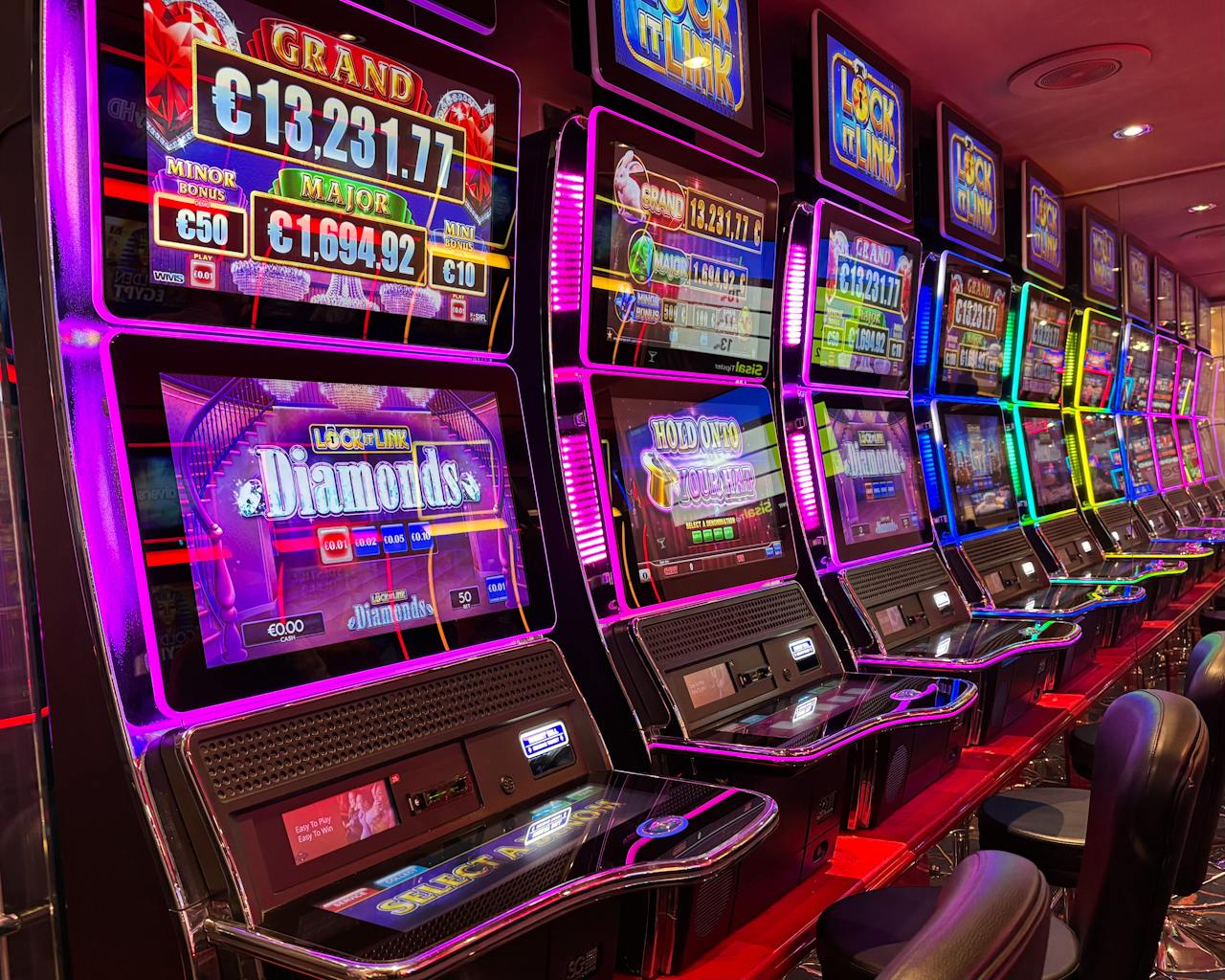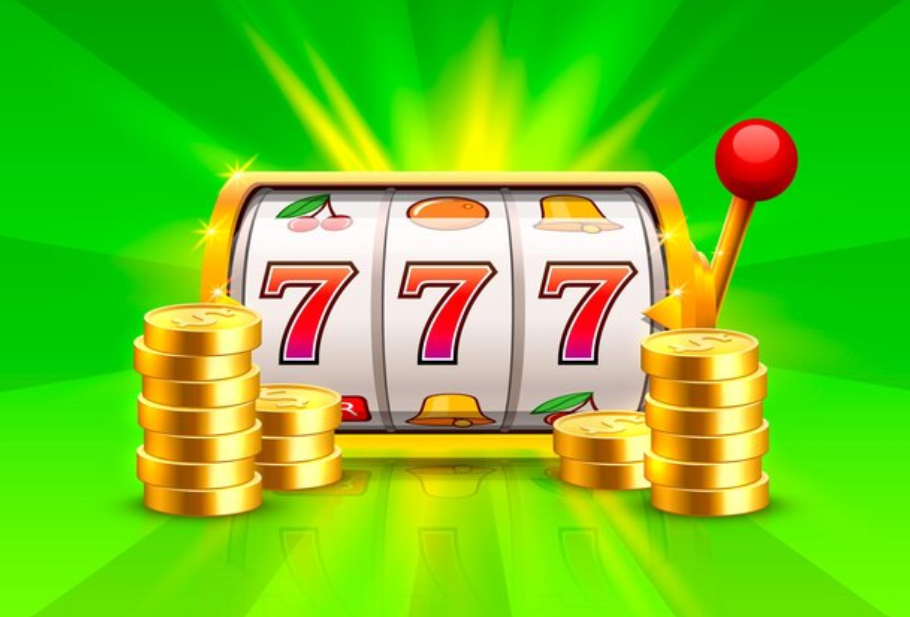What Does Namco Mean in Japanese?
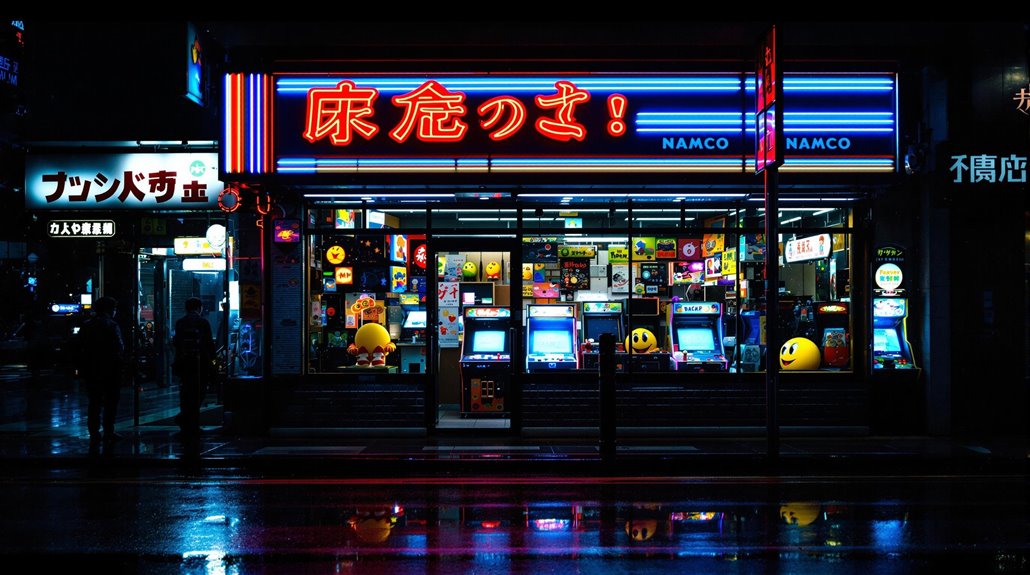
Namco doesn't actually have a meaning in Japanese - it's an acronym from English that stands for "Nakamura Manufacturing Concern." The company started as Nakamura Seisakusho Co., Ltd. in 1955 before adopting the catchier "Namco" name in 1977. You'll hear it pronounced as "Na-mu-ko" in Japan. While the name itself isn't Japanese, the company's path from a small amusement ride manufacturer to a gaming giant tells an fascinating story of innovation.
The Origins Behind Namco's Company Name
When tracing the history of one of gaming's most iconic companies, you'll find that Namco's name has a straightforward business origin. The company was founded in 1955 by Masaya Nakamura as Nakamura Seisakusho Co., Ltd., initially focusing on amusement park rides and mechanical games.
In 1977, as the company's influence grew, they officially reorganized and adopted the name Namco - an acronym derived from "Nakamura Manufacturing Concern." This strategic rebranding helped establish a stronger brand identity, especially as they ventured into the video game industry. The name was specifically chosen to create an easy-to-remember acronym from the company's original Japanese name. You can see how this simplified name better positioned the company for international recognition throughout their history. Similar to how Bandai's acquisition rights transformed the Gundam franchise, Namco's rebranding played a crucial role in their global success.
Japanese Etymology and Translation
While Namco's acronym has English business origins, its pronunciation and usage in Japan offers interesting linguistic observations. When spoken in Japanese, you'll hear the company name pronounced as "Na-mu-ko," reflecting the language's phonetic structure. The name doesn't carry any inherent Japanese meaning, as it's derived from the English words of Nakamura Manufacturing Company, founded by Masaya Nakamura. For their video game division, the company created a variant brand called "Namcot" specifically for home console games.
This name addition cleverly adapted the original company name to sound more Japanese, with the "t" being distinctly pronounced in Japanese speech. Despite being one of Japan's most recognized game companies, Namco's name remains a unique example of Western-influenced Japanese corporate branding. Much like how Mobile Suit Gundam revolutionized Japanese entertainment in 1979, Namco helped shape the video game industry through its innovative approach to branding and game development.
Early Business Name Changes and Evolution
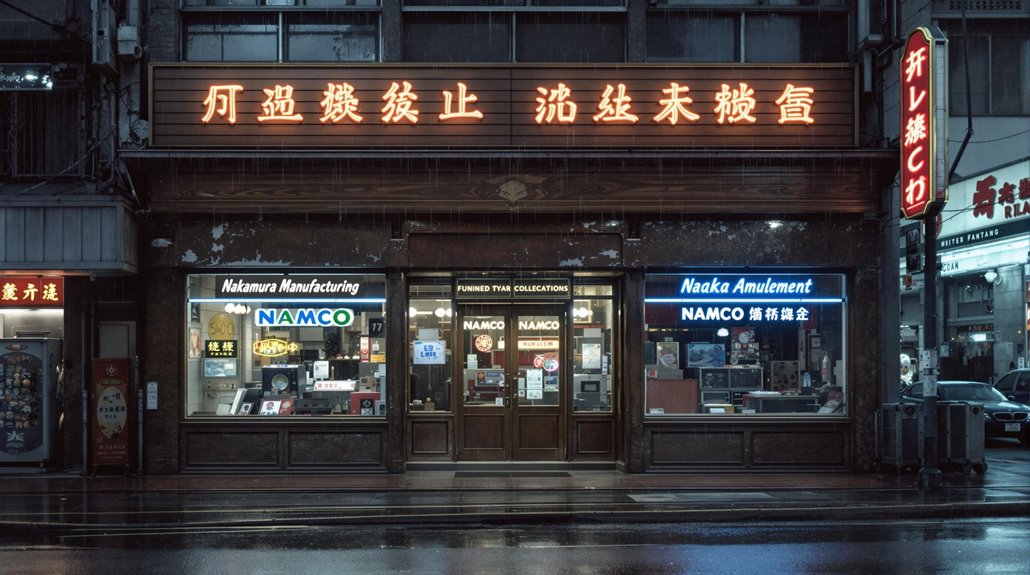
Through several strategic name changes, Namco evolved from its humble beginnings as Nakamura Seisakusho Co., Ltd. in 1955.
You'll find that the company's first metamorphosis occurred in 1958 when it became Nakamura Manufacturing Co., creating the acronym "Namco" from its new title. This transition continued as the company entered the video game industry, officially adopting Namco as its corporate name in 1977.
The decision to use Namco as the brand name proved forward-thinking, as it was more globally recognizable than its previous Japanese titles. The acronym's simplicity and memorable nature have served the company well, with both Namco and its successors continuing to use this distinctive brand identity since the 1970s.
Like the model train industry that saw major technological advancements in the post-war era, Namco would go on to embrace innovation and electronic developments in its products.
Cultural Significance in Japanese Gaming
In Japan's gaming environment, Namco emerged as more than just a company - it became a cultural phenomenon that helped define an era. You'll find Namco's influence deeply woven into Japan's popular culture, from its pioneering arcade games to its beloved mascot, Pac-Man, which transcended gaming to become a national icon.
As a video game developer, Namco revolutionized the gaming industry through innovative hardware and software developments during the golden age of arcade gaming. The company's evolution from a toy manufacturer to a gaming powerhouse mirrors Japan's growing acceptance of video games as a significant cultural medium.
Through dedicated museums, theme parks, and merchandise, Namco's legacy continues to shape Japanese entertainment culture, demonstrating how the company's impact extends far beyond just creating games.
Global Brand Recognition and Meaning
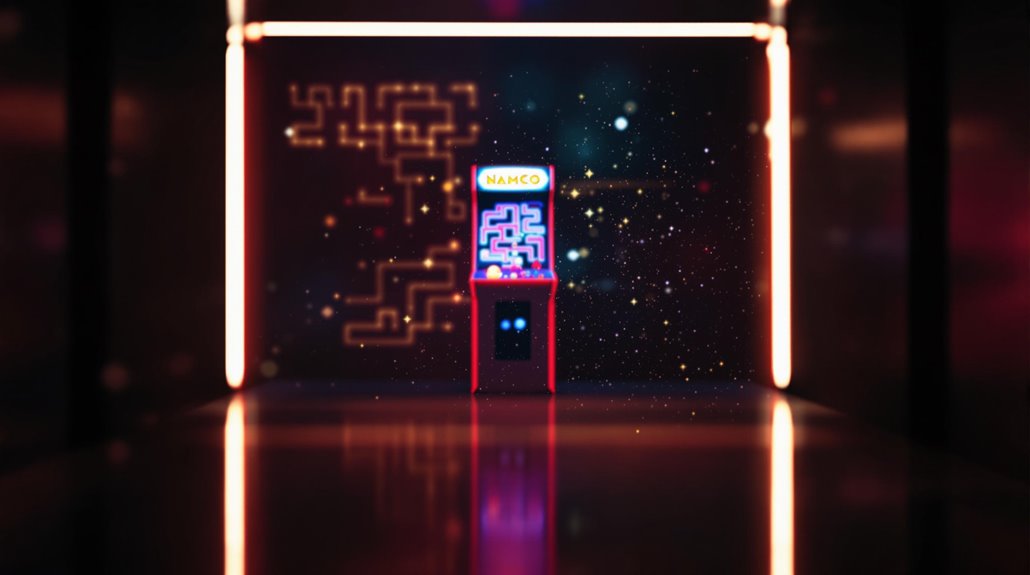
You might be surprised to learn that NAMCO isn't actually a Japanese word, but rather an acronym for Nakamura Manufacturing Concern. First founded in 1955, the company has revolutionized from a manufacturing business into one of the world's most recognized video game brands.
While the name NAMCO doesn't carry inherent meaning in Japanese, it's become synonymous with entertainment excellence through iconic games like Pac-Man and Tekken. The brand's global success has largely overshadowed its Japanese origins, particularly since merging with Bandai.
Today, when you hear "NAMCO," you're more likely to think of its pioneering games than its manufacturing roots. The company's evolution from a Japanese manufacturer to a global entertainment powerhouse demonstrates how a simple acronym can become a powerful brand identity.
Historical Impact on Japanese Corporate Identity
The evolution of Namco's corporate identity extends far beyond a simple name change. When you look at how the Namco brand metamorphosed from Nakamura Seisakusho to become a Japanese multinational video game powerhouse, you'll see it helped shape Japan's corporate milieu in gaming.
Namco's transition reflected Japan's broader evolution from mechanical manufacturing to digital innovation. The Namco brand became synonymous with Japanese gaming excellence. Namco Bandai Holdings later emerged as a testament to Japanese corporate growth. The company's identity influenced how Japanese game production was perceived globally. Namco's console game development set standards for other Japanese developers.
Today, Namco is remembered as more than just a company name - it represents a pivotal moment when Japanese corporations began establishing their unique identity in the global gaming industry, distinguishing themselves from Western competitors like Atari.

